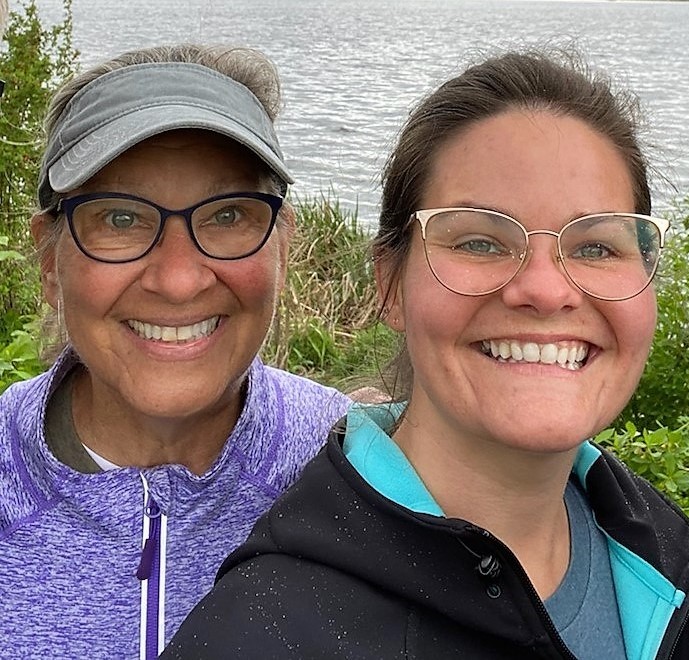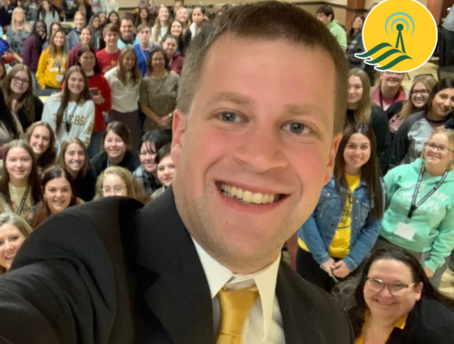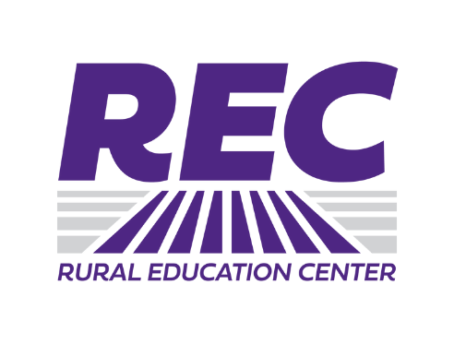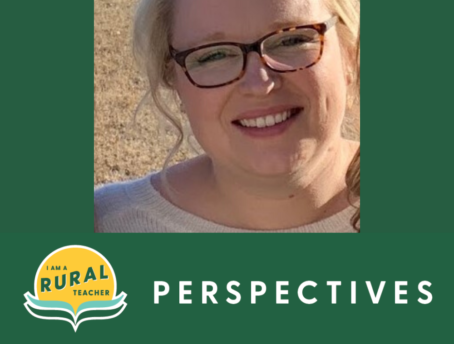This is an op-ed from RSC's Executive Director, Taylor McCabe-Juhnke.

When I first joined Rural Schools Collaborative, many folks asked me different versions of the same question, "If you could do just one thing for rural education, what would it be? What is the biggest challenge you see? What problem would you like to solve?"
This month marks my one year anniversary at Rural Schools Collaborative, and I've spent much of the year listening, asking questions, and learning from others. I do not have all the answers - in fact, much of what we do is uplifting the good ideas and voices of others (that's what a collaborative is all about!). I've picked up some new perspectives, and let others go (ala Think Again, by Adam Grant), but my answer to this big picture question remained unchanged: Pay teachers more.
Of course, this is easier said than done - the money has to come from somewhere, and many rural districts are already operating on overburdened, shoestring budgets. But if someone gave me a magic wand, I would not hesitate to wave it and double (triple? quadruple?) teacher's salaries. And, the salaries of all folks in the education field, for that matter.

Let me lay my biases out on the table - I grew up in a small town in Kansas with my mom as a public school teacher, my dad as a higher ed teacher, and my grandpa as a retired rural principal. I saw how much hard work goes into being a teacher day in and day out, and how it felt like every year, they were asked to do a little more with a little less.
I then followed a winding road in adulthood that led me to the middle of techy Seattle (where making less than $60k a year can be considered low income). While there were a lot of great things going on, there was also a lot of waste. A start up is here one day, with millions of dollars of capital, doing hundreds of thousands of dollars in advertising and swag giveaways, and then gone the next. I kept thinking - do you know how far $100 goes in a small town classroom? Do you know what a difference $1000 makes to a teacher?
Flash forward to my return to my small town, Midwest roots, wishing fervently that some of that mega tech spending in urban areas could reach folks who are giving their blood, sweat, and tears to their rural communities and rural students. I mean, they are only tasked with shaping the minds of our future generations... not to mention all the other needs of their students (a friend, parent, therapist, advocate, provider, community leader, etc.). And, competitive salaries help draw folks into the field. So, that's why teacher salaries are a hill I will die on.
This is why when I read the news that New Mexico signed into law a $10K pay increase for their teachers, I set down my coffee and did a little jig around the house.
The article notes, "Many New Mexico schools pay minimum or near-minimum salaries, particularly in rural areas where the cost of living is low. Starting teachers in those areas can expect the highest increase in pay, around 22%."
Yes! Rural teachers often have to wear more hats than they can bear, and put their own limited resources into their classrooms. If we can fund tech startups in the millions, can’t we fund these teachers as heroes, the same way we do doctors or celebrities?
And, rural administrators cite they often lose their teachers to urban districts, which can pay more. So, raising teacher pay is should be news for New Mexico's rural teachers.
While the proposals also include a 7% wage increase for all school workers, it is important to note that these salary minimums wouldn’t help Indigenous language teachers who are paid as teaching assistants.
That's about the time I stopped doing a jig, picked my coffee back up, and got back to work.
I am hopeful that this news out of New Mexico indicates that nationally, the conversation is shifting to include significant investment in rural teachers and public education. It is an investment in our future, and it's one of the most important ones we can make.
Until I find that magic salary wand laying around somewhere, I will continue to advocate for rural teachers however I can in my sphere of influence, including furthering RSC's work in rural teacher preparation and retention, storytelling, teacher job promotion, and small classroom grants.
If you want to be a part of this work to support rural schools, consider setting up or giving to a local school foundation. I'd also encourage you to sign up for our newsletters to stay in touch, consider making a gift to support our work, and becoming a National Rural Education Association member.
It's going to take true collaboration and elbow grease to make sure rural communities are sustainable, but luckily, we've got a lot of both.
If you are a teacher in a small school, we’d love to hear from you.
What are ways your rural community has invested in you and the school? Please share your story and get in touch!




